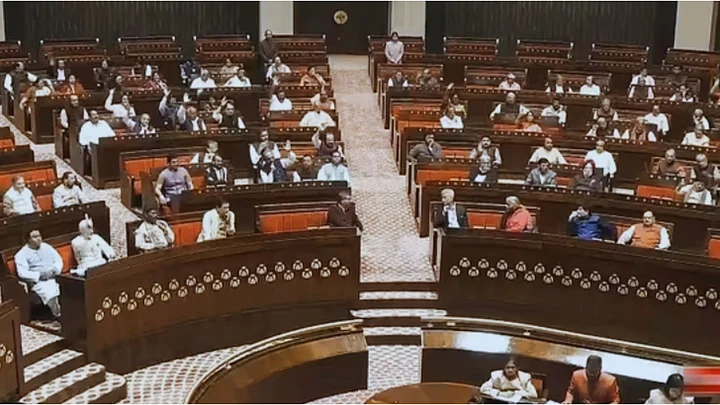It might be unfair to relate parliamentary effectiveness with its functioning level alone. What creates a robust parliamentary system in a country that thrives on celebrating itself as a vishwaguru in democratic conduct is the realised nature of debates and deliberations acting as vital checks and balances on a ruling government’s intent.
Rhetorical pitches on democratic form may have little meaning when not a single bill is scrutinised by the Opposition or isn’t even referred to parliamentary committees for review, approval, feedback, or consultation.
A productivity analysis shows that during the 2023 Winter Session of Parliament, the Lok Sabha functioned for 74 per cent of its scheduled time and the Rajya Sabha for 81 per cent of the same. 10 Bills were introduced and 17 were passed during this period.
In one of the most unfortunate instances in India’s parliamentary history, what this Winter Session may be remembered for is the record number of suspensions seen in any Lok Sabha since independence.
According to data compiled by PRS Legislative Research, all the questions that were asked by suspended MPs were removed from the list of questions awaiting responses.
Since 14 December, the day on which 14 MPs were suspended, 12 per cent of the questions were cancelled in the Lok Sabha and 13 per cent in the Rajya Sabha. No questions were answered orally on two days in the Rajya Sabha and on three days in the Lok Sabha. Overall, question hour functioned for 53 per cent of its scheduled time in the Lok Sabha and 72 per cent in the Rajya Sabha.
The Monsoon Session this year had seen higher legislative activity amidst a rail-roading of bills that were introduced and passed in a continuum. 56 per cent of Bills introduced were passed then with little scrutiny by both Houses (where a bill on average passed within eight days of introduction).
In this Winter session too, no bills were referred to committees. The proportion of bills referred to committees has now decreased from 71 per cent in the 15th Lok Sabha to 16 per cent in the 17th Lok Sabha.
During the last session, the Lok Sabha had passed 22 Bills, and 20 of those bills were discussed for less than an hour before passing. Nine bills, including the IIM (Amendment) Bill, 2023, and the Inter-Services Organisation Bill 2023, were passed within 20 minutes of being introduced in Lok Sabha.
The bills to create the National Nursing and Midwifery Commission and the National Dental Commission were discussed and passed together in the Lok Sabha within three minutes. The CGST and IGST amendment bills were passed together within two minutes in the Lok Sabha.
In the current Winter Session, 10 bills were introduced in the Parliament while seven bills pending from last session were passed. The Telecommunications Bill, which restructures the regulatory framework of the telecom sector, was passed within three days of its introduction. It was discussed for one hour and four minutes in the Lok Sabha and one hour and 11 minutes in the Rajya Sabha.
Three bills replacing the Indian Penal Code, 1860, the Code of Criminal Procedure, 1973, and the Indian Evidence Act, 1872 were discussed and passed. They were discussed for nine hours and 28 minutes in the Lok Sabha and six hours and eight minutes in the Rajya Sabha. 34 members participated in the discussion in the Lok Sabha, 25 of whom belonged to the BJP. In the Rajya Sabha, 40 members participated, of which 30 members belonged to the BJP.
Concluding Remarks
For watchers and observers of each parliamentary session’s proceedings, repetitive acts of adjournments, an ecosystem of chaos, protests (in and outside the chambers of the house), bias and favoritism in attitudinal modulations of House speakers have all become a part of an unusual norm, not to forget the speedy passage of bills by the ruling executive without critical discussion or appropriate reflection.
The current regime, despite its brute electoral majority, has conducted itself with total impunity in using the legislature and the executive to further its agenda of establishing a centralised, consolidated, and absolutist powerhouse.
The presence of legal voids (say from recent or previous Supreme Court judgments), alongside the power of the state, amidst a weak, suspended Opposition, make its path less embroiled with challenges. One can only wish that the Opposition would have done more to resist and fight the regressive turn in Parliamentary proceedings, including the mass suspension of MPs.
What we also see is a social media-anchored dissent by an Opposition that lacks coherence and coordination in resisting the influx of brute power. If the current state of affairs continues, the nature of illiberal resilience seen in the current parliamentary system may culminate in a state of ‘no Opposition’, giving intemperate power to the executive. And that’s even more troubling.
(Deepanshu Mohan is a Professor of Economics and Director, the Centre for New Economics Studies (CNES), Jindal School of Liberal Arts and Humanities, O.P Jindal Global University. This is an opinion piece and the views expressed above are the author’s own. The Quint neither endorses nor is responsible for them.)
